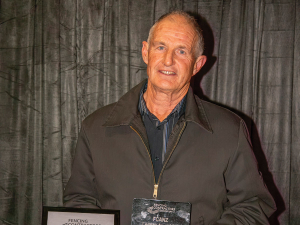LIC fired a salvo earlier this month, saying start planning calving without inductions now, and DairyNZ’s September Inside Dairy, due in mailboxes any day, has mating advice “referencing the new policy”.
DairyNZ has also updated induction information in the reproduction area of its website and regional teams are informing farmers personally, says DairyNZ technical policy advisor, veterinary, Nita Harding.
“We’ve got information out to farmers before the start of mating, so they have time to work with their advisors and can manage mating this year knowing that routine inductions will not be permitted next year.”
Harding says further advice from veterinarians and DairyNZ’s InCalf programme can also help better manage calving pattern (see www.dairynz.co.nz/incalf ).
LIC’s veterinarian and reproduction solutions manager, Joyce Voogt, says make a robust plan to minimise the number of late calving cows.
“The most natural way to do this is by focussing on the herd’s 6-week in-calf rate, with a proactive approach to mating management, all year-round. For many farmers that needs to start this spring.”
Voogt points out the industry target for cows in calf after six weeks of mating is 78% but the national average is 65%, so there’s a big opportunity.
Minda records show many farms achieve the 6-week conception target without inductions and these farms are also substantially closer to target three-week submission and conception rate targets.
While there will always be some late cows, the key is to be proactive in managing them, she says.
“It’s not as simple as pulling the service bulls out early this year. Mating-length decisions should be made with your veterinarian or farm management consultant. Gathering and using the right herd testing and pregnancy testing information will be crucial for making the best mating and culling decisions.”
Analyse which cows will calve late and why, so that underlying causes of slippage in the calving pattern can be addressed.
“The key areas to look at now are heifer liveweight and mating date, cow condition at calving and mating, and early identification and management of non-cyclers.
“Heat detection is always crucial, but don’t forget the natural mating period too. Farmers with enough pregnancy test data can check out their new pregnancy rate graphs in Minda reproduction to see how things went after AB finished in their herd last year.
“Many things can impact a cow’s ability to get in-calf. Now more than ever, as an industry, we need to focus maximising performance in the first half of mating.”

















